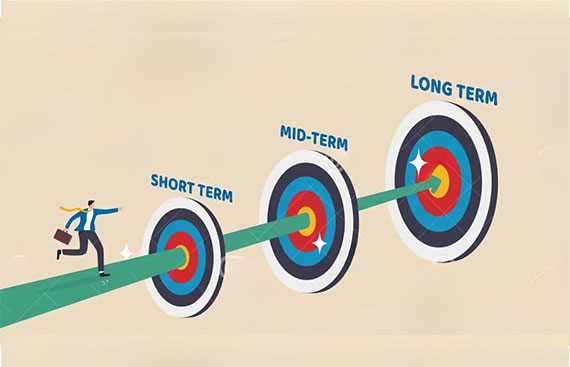Mutual funds are not just for the long term: Short-term strategies that actually work

While mutual funds are often linked with long-term wealth creation, they also can be useful for attaining short-term life goals—saving for a vacation, building a contingency fund or setting aside money for a large purchase.
The key to making short-term mutual fund investments work is selecting funds that keep your money safe, allow you to withdraw easily and give steady returns. When matched with your financial goals and time frame, these funds can be simple and helpful.
This guide covers the types of mutual funds well suited for short-term goals, tips on how to zero in on the right short-term fund and smart strategies to make your short-term investments work effectively.
![]()
Best mutual funds for short-term goals
If your goal is just a few months or years away, short-term debt mutual funds are a smart choice. These invest in low-risk options such as treasury bills, government bonds and other fixed-income instruments. They are best for retail investors who want better returns than a savings account, without taking too much risk.
Here are some popular types:
- Liquid funds: For one–three months; safe and quick to access.
- Ultra-short duration funds: For three–six months; offer slightly higher returns.
- Low duration funds: For six–12 months; balance returns and low risk.
- Short duration funds: For one–three years; offer moderate returns with manageable risk.
How to choose the right short-term mutual fund
When choosing the best mutual fund for short-term investments, ensure you consider the following:
- Investment horizon: Zero in on a fund whose maturity lines up with your financial goal’s time frame.
- Risk tolerance: Pick a fund based on how much risk you are comfortable with.
- Past performance: Check the fund’s historical returns and consistency, while keeping in mind that past performance does not guarantee future returns.
- Expense ratio: For short-term goals, a lower expense ratio can make a noticeable difference in net returns.
- Liquidity: Ensure that the fund offers easy withdrawal options with little to no exit load.
Five smart short-term mutual fund strategies
Here are some effective strategies to make the most of short-term mutual fund investments:
1. Ladder your investments
Split your investment across different funds with staggered maturities (e.g., three months, six months, one year). This way, you get steady returns and flexibility to reinvest or use the money as needed.
2. Build an emergency fund
Use liquid funds or ultra-short duration funds to park money for emergencies. These offer better returns than a bank account while allowing quick access when needed.
3. Avoid equity funds for short-term
Equity mutual funds can be volatile in the short run. For goals less than three years away, it is safer to avoid them and focus on debt mutual funds with low duration.
4. Use SIPs for disciplined saving
Even for short-term goals, Systematic Investment Plans (SIPs) in short-duration debt funds can help you build savings gradually without affecting your monthly budget.
5. Monitor and exit smartly
Keep an eye on your goal timeline and fund performance. Exit the fund just before you need the money to avoid last-minute market fluctuations.
Conclusion
Mutual funds are not just for the long term. With smart planning and the right strategy, they can help you achieve short-term goals safely and efficiently. Whether you are saving for a trip, building an emergency fund, or setting aside money for a major purchase, the best mutual fund for your needs is one that matches your timeline, risk comfort, and return expectations. A little research and consistent investing can go a long way, even in the short term.
